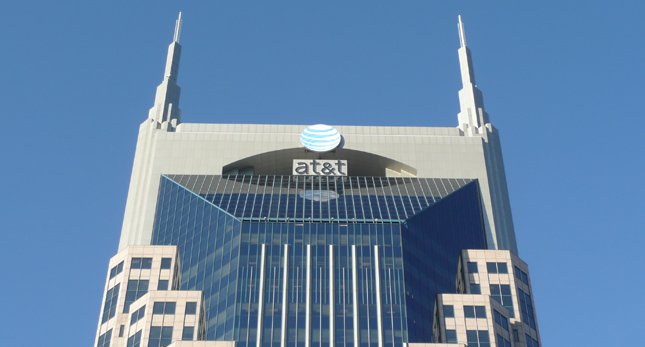AT&T’s tough-talking public policy chief Jim Cicconi wants to set the record straight: AT&T hates the idea of Internet fast lanes. That’s why he’s penned a new blog post over at Ma Bell’s website in which he excoriates net neutrality advocates for accusing AT&T and other ISPs of wanting to create Internet “fast lanes” where they charge Internet companies more money to get their traffic delivered more quickly.
“There is no paid prioritization like Free Press identified on the Internet today,” Cicconi says. “No one has any plan or intent to introduce such paid prioritization practices. ISPs have all posted policies that prohibit them. And the FCC can act against anyone who might nonetheless try to do that. In short, the Internet today is totally safe from fast lanes and slow lanes.”
Wait, what authority does the FCC actually have to make sure ISPs don’t implement fast lanes? As Cicconi correctly notes, the same court that struck down the FCC’s net neutrality framework affirmed the commission’s right to require ISPs to post their network management practices online and to make sure ISPs follow their own guidelines. This means that any ISP that says its traffic management practices forbid creating paid prioritization “fast lanes” would be slapped down by the FCC if it ever tried to implement them without first publicly changing its practices.
But that’s the issue: There’s nothing stopping ISPs from changing their practices to allow for Internet fast lanes. Sure, they’d take a big public relations hit but from a legal standpoint the FCC would be powerless to stop them. What this all boils down to is whether you trust AT&T to regulate itself when it comes to net neutrality.
And besides, even if AT&T doesn’t have any plans to specifically create Internet fast lanes, we do know for a fact that it’s working on something that’s potentially just as, if not more, dangerous to the future of the Internet: Sponsored data plans.
In case you need a recap of how “sponsored data” works, here’s a quick refresher. AT&T implements hard data caps on its mobile customers that will charge them overage fees if they go over their allotted monthly minutes. This is understandably not all that popular with customers who might want to listen to Spotify on their phones when they’re on the go. So AT&T has announced that it’s working on a new initiative in which companies such as Spotify or Pandora can pay money to “sponsor” their users’ data so that it doesn’t count against their monthly caps.
This has the potential to put smaller upstart apps at a major disadvantage since they might not be able to pay enough money to “sponsor” their users’ data on mobile devices. This means that if you’ve come up with a music streaming service that’s even better than Spotify, you still might never be able to effectively compete with the big players simply because your customers won’t be able to use it on their mobile phones without getting socked with overage fees.
And this is why we really shouldn’t just trust ISPs to do the right thing. It’s not that they’re run by bad people, it’s that the position they’re in gives them enormous financial incentives to undermine the open Internet, whether it’s through paid Internet fast lanes or sponsored data initiatives. Unless there are some rules in place telling them they can’t do such things, then they’ll certainly find ways to do them one way or another.






